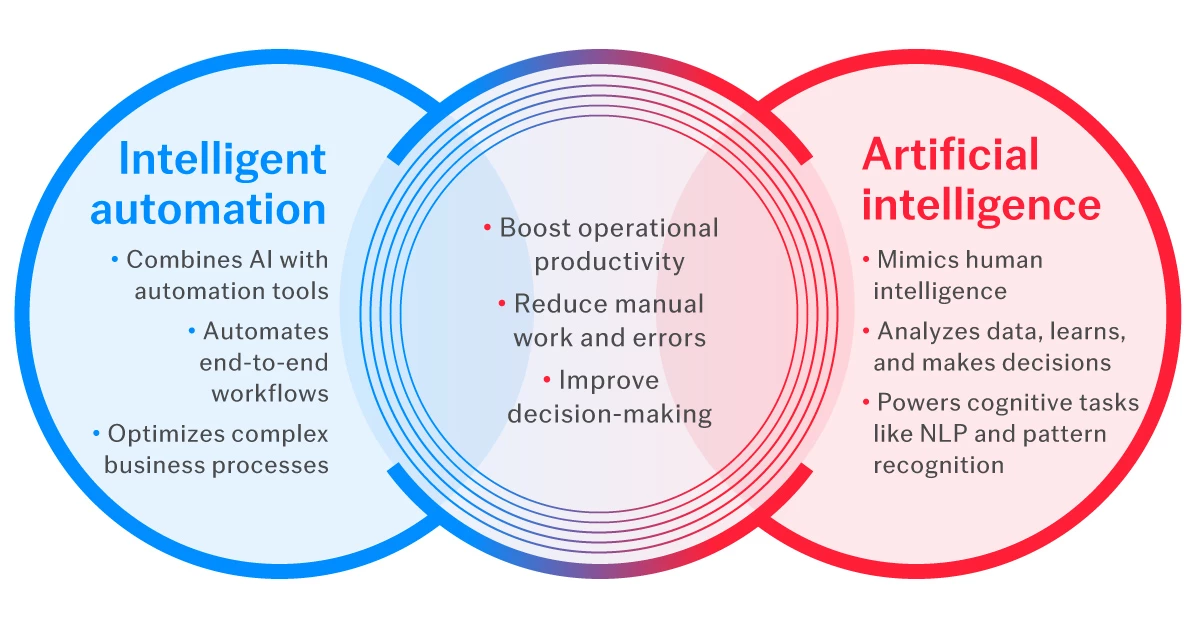Vantage 3.0
Introducing a hybrid approach to using Document AI and GenAI
Supercharge AI automation with the power of reliable, accurate OCR
Increase straight-through document processing with data-driven insights
Integrate reliable Document AI in your automation workflows with just a few lines of code
PROCESS UNDERSTANDING
PROCESS OPTIMIZATION
Purpose-built AI for limitless automation.
Kick-start your automation with pre-trained AI extraction models.
Meet our contributors, explore assets, and more.
BY INDUSTRY
BY BUSINESS PROCESS
BY TECHNOLOGY
Build
Integrate advanced text recognition capabilities into your applications and workflows via API.
AI-ready document data for context grounded GenAI output with RAG.
Explore purpose-built AI for Intelligent Automation.
Grow
Connect with peers and experienced OCR, IDP, and AI professionals.
A distinguished title awarded to developers who demonstrate exceptional expertise in ABBYY AI.
Explore
Insights
Implementation
July 9, 2025
If you've invested in artificial intelligence (AI) solutions but find your team still handles repetitive tasks, you're likely missing a critical piece of the puzzle: intelligent automation. While AI focuses on mimicking human thinking, intelligent automation blends AI with automation to simplify and accelerate entire processes. In this article, you’ll learn how the two solutions differ, where they overlap, and how to use both to your advantage.
Jump to:
What is artificial intelligence (AI)?
Benefits of artificial intelligence
What is intelligent automation?
Benefits of intelligent automation
Intelligent automation vs artificial intelligence: Key differences
Key similarities between artificial intelligence and intelligent automation
How artificial intelligence and intelligent automation work together
How ABBYY purpose-built AI enhances the scope of intelligent automation
Artificial intelligence (AI) is a broad area of technology that allows machines to perform tasks that typically require human intelligence. AI includes machine learning, natural language processing (NLP), computer vision, generative AI (genAI), and other technologies that enable machines to learn, understand, perceive, and create.
Intelligent automation brings together AI-powered technologies and robotic process automation (RPA) to speed up and improve business processes—even the complex ones that require decision-making—by automating them with minimal need for manual input. By combining intelligence with automation, intelligent automation lets you cut costs and boost productivity while adapting more easily to changing business environments.
| Feature | Intelligent automation | Artificial intelligence |
|---|---|---|
| Core capabilities | Automating repetitive tasks, integrating multiple technologies (RPA, AI, analytics), streamlining workflows. | Learning, reasoning, decision-making, handling unstructured data. |
| Use case | Streamlines document processing, optimizes operations, and improves workflows in a wide range of industries. | Powers applications like predictive analytics, fraud detection, speech and image recognition, and generative content. |
| Focus | Automating end-to-end processes by integrating AI with tools like RPA to improve operational efficiency. | Developing adaptable systems that simulate human reasoning and perception to solve problems and make autonomous decisions. |
While AI and intelligent automation are distinct in their roles and functions, they are deeply connected. AI provides the cognitive capabilities for systems to understand, learn, and decide, while intelligent automation builds on these by integrating automation tools to streamline entire workflows. In short, AI is the foundation that enables intelligent automation to deliver smarter, faster, and more adaptive business processes.
Artificial intelligence (AI) and intelligent automation both help you work smarter by reducing manual effort—and the errors associated with it—to boost productivity and streamline workflows.
While artificial intelligence refers to a category of technologies, intelligent automation refers to an approach to solving a business problem. Together, AI-powered intelligent automation supports faster, more confident decision-making.

Artificial intelligence (AI) and intelligent automation (IA) create a powerful synergy that lets organizations automate routine, rule-based tasks and complex, data-driven processes alike.
Take intelligent document processing (IDP), for example. In this solution, AI technologies like natural language processing (NLP), computer vision, and machine learning extract and interpret data from unstructured documents, while intelligent automation tools such as robotic process automation (RPA) handle the end-to-end workflow—routing, validating, and integrating the information into business systems.
Basically, AI brings adaptability and learning to automation, and IA ensures processes are executed efficiently, accurately, and at scale. This allows businesses to achieve end-to-end automation with higher accuracy and quicker responsiveness to changing business needs.
AI has become an essential part of intelligent automation for businesses today. Previously, automation was limited to simple, rule-based tasks. All the thinking and decision-making—even for routine steps like routing documents or validating data—had to be done by humans. Now, with AI advanced enough to make decisions, combining it with automation allows you to tackle more complex processes like understanding unstructured data, making context-aware decisions, and improving workflows over time.
Understanding the differences and synergies between artificial intelligence and intelligent automation is crucial for organizations aiming to drive digital transformation and achieve real business impact.
At ABBYY, we bring these capabilities together through purpose-built technologies, offering the Intelligent Document Processing (IDP), and the Process Intelligence solution, enabling organizations to automate and optimize even the most complex, document-intensive workflows.
Our low-code solutions empower non-technical team members to automate tasks, scale automation across teams and systems, and make faster, more informed decisions. By leveraging advanced AI for data extraction, classification, and continuous learning, ABBYY ensures your automation initiatives are not only efficient but also adaptable to evolving business needs.
To see how ABBYY can make intelligent automation work for you, get in touch with one of our experts today.